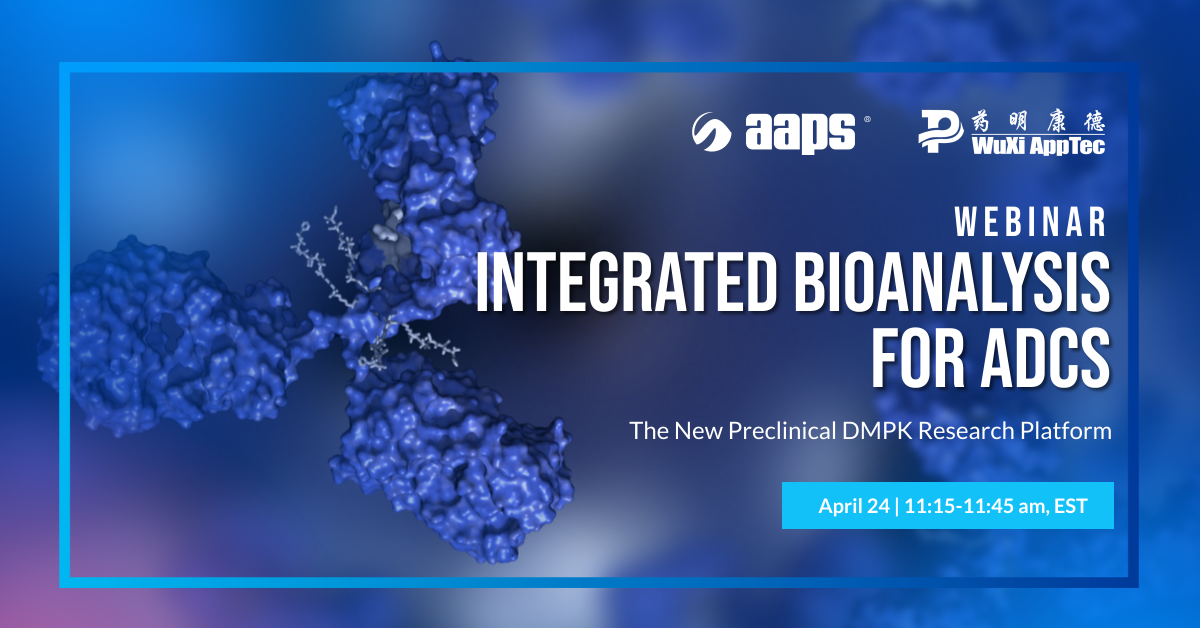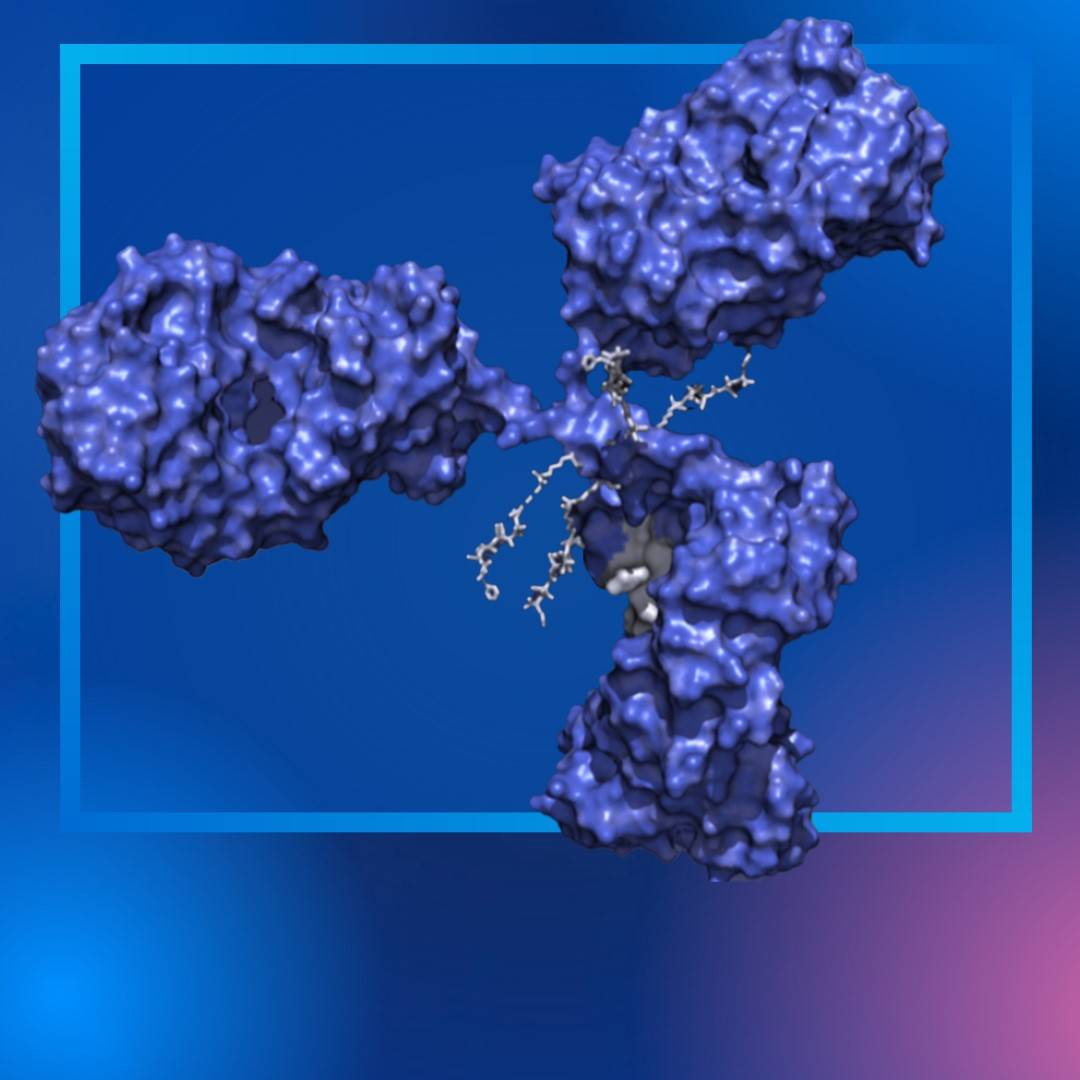Catalog
Antibody-drug conjugates (ADCs) are an exciting therapeutic modality that can target and destroy cancer cells like few other therapies. At present, 16 ADC drugs have been marketed globally, including 15 FDA-approved and one NMPA-approved ADC. However, despite its advantages, the intricate structure of ADCs—which includes a monoclonal antibody, a cytotoxic payload, and a chemical linker—makes them difficult to investigate. To address the challenges, preclinical researchers need a better approach.
In this webinar, we explore an integrated platform for preclinical DMPK bioanalysis of ADCs and how it can help characterize the pharmacokinetic (PK) profile of each of an ADC drug’s structural components. The platform incorporates a number of different testing strategies—ligand-binding assays (LBAs), liquid chromatography mass spectrometry (LC/MS), hybrid LBA-LC/MS bioanalysis—and is divided into six parts: total antibody, conjugated antibody (ADC), free payload, metabolite identification (MetID) and major metabolites, immunogenicity, and the drug antibody ratio (DAR) evaluation. We’ll dive into each part in detail, and, along the way, review several internal validation cases of DMPK research for ADCs.
What You’ll Learn:
1. A new, integrated platform for ADC preclinical DMPK bioanalysis.
2. The recommended in vitro ADME and in vivo PK studies drawn from regulatory guidance and white pages.
3. The details behind several internal validation cases of preclinical DMPK research for ADCs.
About this item

Antibody-drug conjugates (ADCs) are an exciting therapeutic modality that can target and destroy cancer cells like few other therapies. At present, 16 ADC drugs have been marketed globally, including 15 FDA-approved and one NMPA-approved ADC. However, despite its advantages, the intricate structure of ADCs—which includes a monoclonal antibody, a cytotoxic payload, and a chemical linker—makes them difficult to investigate. To address the challenges, preclinical researchers need a better approach.
In this webinar, we explore an integrated platform for preclinical DMPK bioanalysis of ADCs and how it can help characterize the pharmacokinetic (PK) profile of each of an ADC drug’s structural components. The platform incorporates a number of different testing strategies—ligand-binding assays (LBAs), liquid chromatography mass spectrometry (LC/MS), hybrid LBA-LC/MS bioanalysis—and is divided into six parts: total antibody, conjugated antibody (ADC), free payload, metabolite identification (MetID) and major metabolites, immunogenicity, and the drug antibody ratio (DAR) evaluation. We’ll dive into each part in detail, and, along the way, review several internal validation cases of DMPK research for ADCs.
What You’ll Learn:
1. A new, integrated platform for ADC preclinical DMPK bioanalysis.
2. The recommended in vitro ADME and in vivo PK studies drawn from regulatory guidance and white pages.
3. The details behind several internal validation cases of preclinical DMPK research for ADCs.
Speaker Information

Maotian Zhou Ph.D.
WuXi AppTec, LTD DMPK, Associate Director II. Leader of ligand binding assay bioanalysis platform.
Dr. Maotian Zhou received his bachelor's degree in biology and Ph.D. degree in biochemistry from Wuhan University. His Ph.D. work focused primarily on innate immune and proteomics research. He then conducted postdoctoral research at MD Anderson Cancer Center and Emory University, focusing on oncology and neurobiology research, respectively. After joining WuXi AppTec DMPK in 2020, his concentration turned toward large molecular bioanalysis. This included leading a team to support the bioanalysis of more than 500 screening phase projects and more than 100 IND phase projects for DMPK study. In each case, he worked closely with sponsors to conduct preclinical DMPK studies efficiently and in a high-quality manner.
